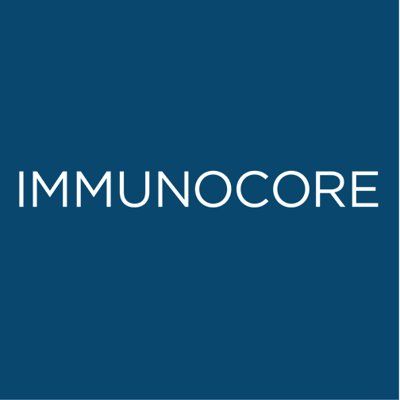预约演示
更新于:2025-05-07
CD3 x MAGEA4
更新于:2025-05-07
关联
5
项与 CD3 x MAGEA4 相关的药物作用机制 CD3抑制剂 [+3] |
在研机构 |
原研机构 |
最高研发阶段临床2期 |
首次获批国家/地区- |
首次获批日期1800-01-20 |
作用机制 CD3刺激剂 [+2] |
在研机构 |
原研机构 |
非在研适应症- |
最高研发阶段临床1/2期 |
首次获批国家/地区- |
首次获批日期1800-01-20 |
作用机制 CD3刺激剂 [+1] |
在研适应症 |
非在研适应症- |
最高研发阶段临床前 |
首次获批国家/地区- |
首次获批日期1800-01-20 |
5
项与 CD3 x MAGEA4 相关的临床试验NCT06402201
Phase 1, First-in-Human Study to Assess the Safety, Tolerability and Anti-tumor Activity of CDR404 in HLA-A*02:01 Participants With MAGE-A4 Expressing Solid Tumors
CDR404 is a highly potent and specific T-cell engaging bispecific and bivalent antibody designed for the treatment of cancers positive for the tumor-associated antigen melanoma-associated antigen 4 (MAGE-A4). This is a first-in-human study designed to evaluate the safety, tolerability, and preliminary anti-tumor activity of CDR404 in adult patients who have the appropriate germline human leukocyte antigen HLA-A*02:01 tissue marker and whose cancer is positive for MAGE-A4.
开始日期2024-05-24 |
申办/合作机构 |
NCT05129280
An Open-label, Multicenter, Phase I Study to Evaluate Safety, Pharmacokinetics, and Preliminary Anti-tumor Activity of RO7444973 in Participants With Unresectable and/or Metastatic MAGE-A4-positive Solid Tumors
This is a first-in-human, open-label, uncontrolled, multi-center, monotherapy dose-escalation and dose expansion study of RO7444973.The aim of this study is to evaluate the safety, pharmacokinetics, pharmacodynamics, and preliminary efficacy of RO7444973 in participants with unresectable and/or metastatic melanoma-associated antigen A4 (MAGE-A4)-positive, solid tumors, carrying the HLA-A*02:01 allele.
开始日期2022-01-25 |
申办/合作机构 |
100 项与 CD3 x MAGEA4 相关的临床结果
登录后查看更多信息
100 项与 CD3 x MAGEA4 相关的转化医学
登录后查看更多信息
0 项与 CD3 x MAGEA4 相关的专利(医药)
登录后查看更多信息
3
项与 CD3 x MAGEA4 相关的文献(医药)2023-12-01·Molecular Oncology
Expression of cancer–testis antigens in the immune microenvironment of non‐small cell lung cancer
Article
作者: Rassy, Marc ; Méar, Loren ; Hikmet, Feria ; Brunnström, Hans ; Mattsson, Johanna Sofia Margareta ; Micke, Patrick ; Botling, Johan ; Backman, Max ; Djureinovic, Dijana ; Lindskog, Cecilia
Nature Communications1区 · 综合性期刊
Structural analysis of cancer-relevant TCR-CD3 and peptide-MHC complexes by cryoEM
1区 · 综合性期刊
ArticleOA
作者: Dudgeon, Drew ; Lin, John C ; Murphy, Andrew J ; Franklin, Matthew C ; Jones, Jennifer ; Yancopoulos, George D ; Moore, Michael J ; Zhou, Yi ; Rafique, Ashique ; Olson, William C ; Saotome, Kei ; Colotti, Kiersten
International Immunology3区 · 医学
Dendritic cells partially abrogate the regulatory activity of CD4+CD25+ T cells present in the human peripheral blood
3区 · 医学
Article
作者: Krishnadas, Deepa K. ; Ahn, Justin S. ; Agrawal, Babita
6
项与 CD3 x MAGEA4 相关的新闻(医药)2024-11-04
·药时代
正文共:2434字 1图
预计阅读时间: 6分钟
在2024年第三季度,跨国药企对其新药管线进行了一系列的增加和删除调整,以适应不断变化的市场需求和科研进展。以下是对这些调整的详细总结。
Novartis(诺华)
2023年,诺华成功剥离山德士之后,完成了向“纯药企”定位的转型。诺华明确聚焦心血管-肾脏-代谢、免疫、神经科学和肿瘤业务四大核心治疗领域。
诺华在第三季度的管线调整中,增加了几个新药项目,包括FXX489和177Lu-NNS309 Radioligand therapy用于实体瘤治疗,GIZ943针对FOLR1的放射性配体疗法,ITU512作为HbF诱导剂(WIZ降解剂)用于镰状细胞病,以及VHB937作为TREM2稳定剂和激活剂(单克隆抗体)用于肌萎缩侧索硬化症治疗。
同时,诺华也从管线中删除了QGE031(ligelizumab),一种IgE抑制剂,用于食物过敏;PHE885(durcabtagene autoleucel),BCMA细胞疗法,用于4线多发性骨髓瘤;以及CMK389,IL-18抑制剂,用于肺结节病。
BMS(百时美施贵宝)
百时美施贵宝在第三季度增加了BMS-986460针对去势抵抗前列腺癌的治疗,BMS-986484针对实体瘤,以及RYZ801,GPC3-225Ac。
公司删除了MAGEA4/8 TCER (IMA401),IMA401原研为Immatics,今年9月份Immatics在ESMO会议刚公布IMA401的初步临床验证数据,便遭退货。此外,还有一款TIGIT双特异性抗体以及抗IL8抗体BMS-986253均遭删除。
Roche(罗氏)
罗氏在第三季度的管线调整中增加了RG6434针对神经退行性疾病,LTBR激动剂针对实体瘤,以及CDK4/2i (RGT419B)针对HR+乳腺癌。
与此同时,罗氏从管线中删除了多个项目,包括tobemstomig PD1/LAG3双抗针对实体瘤,forimtamig GPRC5D/CD3双抗用于多发性骨髓瘤,RG6341 TRPA1拮抗剂用于慢性咳嗽,bepranemab抗Tau单抗用于阿尔茨海默病,ruzotolimod TLR7激动剂用于乙型肝炎病毒(HBV),xalnesiran RNAi用于HBV,PDL1 LNA用于HBV,以及HBsAg Mab用于慢性乙型肝炎。
Pfizer(辉瑞)
辉瑞在第三季度,宣布自愿从目前所有获批的市场中撤回所有批次的镰状细胞病(SCD)治疗药物Oxbryta,并停止所有正在进行的临床试验和全球扩展访问计划。
同时,公司还从管线中剔除了一种早期阶段的RSV和流感的组合疫苗PF-07941314;目前处在临床二期的CDK2抑制剂Tagtociclib ;下一代CDK4抑制剂PF-07220060联合内分泌治疗。
GSK(葛兰素史克)
葛兰素史克在第三季度将GSK4527363,一种B细胞调节剂,用于系统性红斑狼疮,新加入到I期临床研究。
公司从管线中删除了GSK5101956(肺炎球菌24价疫苗)用于成人肺炎球菌病;淋病疫苗GSK4348413,其疫苗类型显示为膜抗原(GMMA);首款单纯疱疹病毒(HSV)疫苗GSK3943104;以及GSK3858279(抗CCL17单抗)用于骨关节炎疼痛。
Sanofi(赛诺菲)
赛诺菲在第三季度移除了三项研究,包括losmapimod(p38α/β MAPK抑制剂)用于治疗面肩肱型肌营养不良(FSHD)的III期临床研究,以及oditrasertib(RIPK1抑制剂)用于多发性硬化症(MS)的II期研究。
Merck(默沙东)
默克在第三季度从管线中删除了MK-8189,一种PDE10A抑制剂,用于精神分裂症,以及MK-7264(gefapixant),一种P2X3受体拮抗剂,用于咳嗽(美国)。
J&J(强生)
强生在第三季度管线中删除了一款IL-17抑制剂JNJ-1459,以及三款神经科学领域的临床研究项目:包括:seltorexant治疗阿尔兹海默病的II期临床研究、P2X7拮抗剂治疗双相障碍(Bipolar Depression)的II期临床研究,以及另一项JNJ-0376治疗帕金森病的I期临床研究。
其中,seltorexant是强生在研的OX2R拮抗剂,其在重度抑郁症和失眠症领域的开发已进入III期临床阶段。
Eli Lilly(礼来)
礼来在第三季度从管线中删除了APOC3 siRNA,用于心血管疾病的I期研究,DC-806,一种用于银屑病的IL-17A/IL-17F蛋白-蛋白相互作用抑制剂,以及PERESOLIMAB,一种用于类风湿性关节炎的抗PD1单抗。
小结
对于市场而言,管线的剔除多被市场认定为“失败”,多会影响投资界与研发界的判断。
当然,"砍管线”对于企业本身并非坏事,反映了药企在新药研发领域的动态变化,旨在优化管线,集中资源于最有前景的项目,并及时淘汰那些不符合预期的项目。
随着临床试验的进展和市场需求的变化,我们可以预期这些药企将继续调整其管线,以保持竞争力和创新能力。
封面图来源:123rf
欢迎参加进博会自身免疫、炎症和癌症首届创新药研发峰会暨JAK-STAT信号通路发现30周年庆典!
2024-11-03
转机!FDA高级官员发话,CAR-T有望摘下 “黑框警告”
2024-11-02
复宏汉霖「地舒单抗」上市申请获FDA受理!
2024-11-01
版权声明/免责声明
本文为原创文章。
本文仅作信息交流之目的,不提供任何商用、医用、投资用建议。
文中图片、视频、字体、音乐等素材或为药时代购买的授权正版作品,或来自微信公共图片库,或取自公司官网/网络,部分素材根据CC0协议使用,版权归拥有者,药时代尽力注明来源。
如有任何问题,请与我们联系。
衷心感谢!
药时代官方网站:www.drugtimes.cn
联系方式:
电话:13651980212
微信:27674131
邮箱:contact@drugtimes.cn
点击查看更多精彩!
临床1期临床2期疫苗放射疗法
2024-09-24
·动脉网
近期,双抗领域疯狂“上分”。
图1. 依沃西与K药在治疗PD-L1表达阳性的非小细胞肺癌患者的临床对比(数据来源:公开资料)
先是在产品端。9月9日,康方生物在“2024世界肺癌大会”上公布了自主研发的全球首创PD-1/VEGF双特异性抗体新药依沃西单药与帕博利珠单抗单药(即“K药”)的头对头三期临床数据:依沃西单药在中位无进展生存期(mPFS)、风险比(HR)、客观缓解率(ORR)和疾病控制率(DCR)上均大幅胜出。值得一提的是,“K药”是史上最好的抗癌药物之一,同时也是当前全球销售额最高的“药王”,依沃西此次能够“单挑”成功,意义重大。
几乎是在同一天,Candid Therapeutics宣布完成3.7亿美元融资,这是今年截至目前生物医药行业规模最大的一轮融资,而在这轮融资中,也与双抗息息相关。据悉,Candid的启动结合了两家生物技术公司Vignette Bio和TRC 2004及其主要资产的收购,管线之一CN106是Vignette Bio受让于岸迈生物的靶向BCMA的TCE分子EMB-06,管线之二CN261则是TRC 2004从嘉和生物买下的GB261,两款均为双抗药物。
另外在沉默许久的二级市场,近期也有双抗的好消息释出。9月13日,Zenas BioPharma和Bicara Therapeutics同时在纳斯达克敲钟上市,两家biotech的核心管线均为双抗药物,其中Zenas拥有双功能单克隆抗体obexelimab,Bicara则拥有EGFR/TGF-β双抗药物BCA101。在当前愈发紧张的二级市场,一天还能有两家企业上市,无疑不验证了双抗赛道的火爆。
那么,双抗到底在火什么呢?
谁悄悄点燃了双抗的热情?
事实上,双抗的首次爆发是在2022年。这一年,全球共有4款双抗药物获批上市,其中就包含了罗氏手里的重磅双抗Vabysmo和康方生物全球首创的PD-1/CTLA-4双抗开坦尼。而在这之后,全球各大巨头开始纷纷加码双抗研发,通过合作或引进临床早期项目或高水平的技术平台等,试图在“双抗热”中分一杯羹。
巨头之所以会如此,很大程度上也是看重了双抗药物的临床价值。据悉,相较于单抗ADC,双抗ADC典型特点在于其具有两个抗原结合位点,可通过结合肿瘤细胞和免疫细胞,增强对肿瘤的杀伤力,而且在结合两种不同的细胞表位抗原后,可以降低脱靶等引起的副作用,同时双靶点能够阻断两种不同的信号通路从而增强细胞杀伤毒性,克服耐药性。
但这只是一方面,与大多数创新药一样,商业化仍然是横在其发展道路上的难题,行业都在等双抗领域的“成绩单”。而从今年年报来看,双抗已经成为各大药企业绩增长甚至是扭亏为盈的关键动力。
图2. 全球已上市双抗药物一览(数据来源:锦缎研究院)
以康方生物为例。2023年,康方生物通过其双抗产品实现了年度盈利,依沃西单抗(PD-1/VEGF双抗)获得了5亿美元的首付款,而卡度尼利单抗作为首个国产双抗,销售额达到了13.58亿元人民币,增长势头十分强劲。另外从海外视角来看,2024年上半年,罗氏的两款非肿瘤双抗药物治疗血友病的FIX/FX双抗和治疗眼科疾病的VEGF/Ang2双抗的销售额合计高达48亿美元,这不仅拉动了罗氏的业绩增长,同时也使得全球双抗药物市场规模大幅提升。
除此之外,双抗BD交易也如火如荼,不少药企正依靠其快速“回血”。今年以来,国内已有7家药企完成了双抗药物授权交易,在这之中最抢眼的是同润生物,8月9日,默沙东宣布已经与同润生物达成最终协议,将通过子公司收购同润生物用于治疗B细胞相关疾病的新型双特异性抗体CN201。据悉,该笔交易首付款高达7亿美元,这是中国Biotech出海交易获得的第二大首付款,仅次于百利天恒双抗ADC新药出海BMS获得的8亿美元首付款。而依靠这笔不菲收入,同润生物的现金流得到了巨大补充。
所以回过头来看,双抗能在今年再度爆发,实际上是其商业模式得到了验证,这在强调盈利、强调现金流的当下至关重要。那么,到底是什么推动双抗成为了一门好生意呢?
这体现在多个层面,除了前面提到的临床价值之外,还在于其广泛的应用领域,虽然双抗药物当前主要用于肿瘤治疗,但在自身免疫疾病、眼科疾病、血友病等,其治疗潜力也不断被挖掘。同时,随着技术的不断进步和产业的规模化,双抗药物的生产成本预期将逐渐降低,这使得更多患者能够负担起这类高效治疗药物,这大大提高了药物的可及性。
对此,某专业人士谈道,“抗肿瘤领域当前其实已有许多有效的单抗和其他治疗方式,所以双抗想要在市场中脱颖而出,必须要证明其具有独特优势,那么从实际表现来看,其在疗效、安全性、成本等方面都有一定竞争力。此外,相比于单抗只对于单一适应症,双抗可以延伸到血友病、眼科疾病等领域,这背后都有庞大的患者人群,是一个巨大的市场。”
国产双抗“杀”疯了?
在不少业内人士看来,双抗ADC是中国药企为数不多能够与海外直接抗衡甚至是领先的一个赛道。
图3. 全球进入临床阶段的 16 款双抗 ADC (数据来源:Insight,数据截至2024年5月底)
这并非没有依据。首先从绝对数量上来看,根据Insight数据库显示,截至2024年5月底,全球共有16款双抗ADC进入临床阶段,且大部分来自中国药企,包括百利天恒、康宁杰瑞、正大天晴等。另外在关键的研发端,全球近一半双抗项目也是由国内公司开发,包括恒瑞、石药、翰森制药等头部企业均在大力布局。
而在关键的产品力上,国产双抗也毫不逊色。比如前文提到的依沃西单药,其不仅在各项数据上均优于“K药”,甚至优势还非常明显,以中位无进展生存期(mPFS)为例,依沃西达到了11.14个月,高出“K药”整整近五个月。对此,有业内人士表示,“这非常难得,是实质性的突破。”
当然,国产双抗并非依靠依沃西单打独斗,百利天恒的BL-B01D1同样也是代表性产品。2023年12月,百利天恒以最高84亿美元将BL-B01D1授予BMS,这刷新了国产ADC新药出海授权新纪录。而BMS之所以愿意下重金,当然是看中了BL-B01D1的价值。目前,BL-B01D1共有7个III期临床正在进行中,包括肺癌、乳腺癌、鼻咽癌、食管鳞癌等,此外还有14项II期临床也在同步进行,覆盖瘤种超过10个。根据预测,BL-B01D1将于2028年在美国上市,届时将有望成为全球首款获批上市的双抗ADC药物,首年销售峰值预计超69亿元。
除此之外,康宁杰瑞的JSKN003、正大天晴的TQB2102和轩竹生物的KM-501等国产双抗,也都有一定竞争力,并且当前都在向各自里程碑加速迈进。
而这种集体爆发势头,也引起了MNC的注意。今年以来,MNC开始疯狂扫货中国双抗ADC,不仅交易数量明显增多,并且投入金额也非常大,据动脉网不完全统计,截至今年8月底,国产双抗光是首付款就已多达30亿美元。事实上这还只是开始,包括赛诺菲、百时美施贵宝等在内的多家MNC,仍表示要继续在中国寻找更多并购机会。
图4. 2024年中国双抗管线BD一览(数据来源:公开资料)
这其中当然有原因,最关键的一点就是MNC对于国产双抗产品的认可,毕竟在当前市场环境下,收并购产品不仅要创造营收,成为MNC未来重要的增长动力,同时也要能够帮助其维持市场地位,而这都需要足够的产品力来作支撑。
那么,到底是什么因素推动国产双抗当前处于全球领先地位呢?
通过与多位专业人士对话,动脉网认为主要有两点:第一点是基于国内药企强大的工程化能力。对此,某药企负责人谈道,“全球范围内目前进入临床阶段的双抗ADC药物数量并不多,但国内药企能够在研发数量上领先,这在一定程度上可以归功于ADC药物的工程化属性较强,看重的是三大元器件的有机组合,这正是国内药企的强项。”
第二点则是国内药企“卷生卷死”的执行力。为此,某BD负责人表示,“医药行业的发展逻辑就是,当某个赛道有重大突破或者出现重磅分子后,整个赛道的价值会瞬间飙升,然后就会吸引头部企业争相布局,竞争也就由此开始。双抗当然也是如此,而从目前来看,国产双抗不仅种类多样,靶点组合丰富,并且多个产品已经处于临床开发中后阶段,未来3-5年会进入集中收获期。这当然离不开行业内卷所带来的推动力。”
除此之外,我国在医药方面创新能力的显著提升以及在双抗领域国内外起步差距不大等,都是国产双抗能够脱颖而出的关键所在。
百亿美元市场背后,
暗藏“杀机”
根据弗若斯特沙利文预测,未来双抗的增速将会超过单抗,2030年预计全球市场规模800亿美元,中国市场规模超100亿美元。西南证券也表达了相同观点,根据其推测,我国双抗市场规模将由2021年的约5000万美元增长到2030年的108亿美元,2022至2030年复合增长率高达81.7%。
图5. 2022-2033全球双抗市场规模(图片来源:Market.us数据)
这无疑是一个巨大的潜力市场,但国产双抗想要啃下并不容易,其不仅要在国内市场“卷”到天花板,同时也要直面与MNC的激烈竞争。
就以近期备受关注的依沃西单药为例,虽然三期结果可喜,但癌症治疗的一个关键指标总生存期(OS)尚未公布,并且此次临床试验入组患者全部来自中国,这还不足以作为闯关国际市场的凭证。而根据规划,依沃西单抗头对头“K药”的全球三期临床试验与2023年10月启动,随访期4年,也就是说,至少要等到2027年9月,依沃西对垒K药的海外临床试验才能初步完成。因此想要拿到欧美市场入场券,依沃西单抗还要经历不小的难关。
事实上,这只是一个缩影,对于其他国产双抗来说,想要真正迎来爆发,挑战仍然非常艰巨。
图6. 双抗药物靶点TOP10(图片来源:Market.us数据)
比如在关键的靶点选择方面,需要确保靶点之间既有功能上的协同作用又有结构上的非竞争性,如果存在竞争,两个结合位点就会互相干扰,作用机制会因此顾此失彼。而从目前来看,“CD3”使用率最高,它也因此被称为双抗领域的“黄金靶点”。
据悉,CD3蛋白是免疫系统中关键的分子之一,参与激活细胞毒性T细胞(CD8+初始T细胞)和T辅助细胞(CD4+初始T细胞),负责监测和抵御体内的感染和异常细胞。CD3靶向药研究最多的就是双抗,这是因为CD3双抗能够使CD3+ T细胞重定向靶向杀伤癌细胞。而从已上市双抗产品来看,有2/3都属于CD3靶点,包括罗氏的Glofitamab、强生的Teclistamab等。
另外在抗体结构设计方面,同样需要确保双抗的结构稳定性。虽然相较于单抗,双抗增加了一个特异性抗原结合位点,有了更强的疗效,但这也因此使得双抗的设计、生产和临床开发比单抗要复杂得多,技术壁垒也更高。因此在设计双抗时,需要综合考虑协同效应、结构稳定性、免疫原性、临床前验证、剂量和给药方案以及临床试验设计等多个方面。
而在行业人士看来,最有希望实现共赢的双抗设计,是建立在抗PD-1/PD-L1轴心之上的结构设计,比如以依沃西为代表的PD-1/VEGF双抗和以卡度尼利为代表的PD-L1/CTLA-4双抗。以PD-L1/CTLA-4为例,从临床效果来看,PD-L1和CTLA-4能够在T细胞上共同表达,双抗同时结合,可同时阻断两个靶标,效果预期更好。目前,在这一抗体结合上,国内除了卡度尼利,另外还有康宁杰瑞的KN-046、齐鲁制药的QL1706以及百利天恒的SIB-003等,其中KN-046和QL1706已到临床Ⅲ期。
最后是要平衡市场竞争。据不完全统计,2023年全球至少有16条ADC临床管线终止研发,共涉及9家药企。终止原因无外乎技术不成熟难成药、临床失败、合作破裂项目中断、资金压力大,又或是因市场变化进行战略调整等。这实际上是绝大多数管线的发展状态,即一边迷茫,一边继续向前。
双抗当然也不例外,在行业火爆的另一面,被退货、关闭管线等其实也在同步上演。近日,Immatics在2024 ESMO大会上以口头报告的形式首次报告了授权给BMS的靶向MAGEA4/8的TCR双抗药物IMA401的临床数据,结果显示,IMA401耐受性良好,其单药治疗的抗肿瘤活性已经通过持久的客观反应和疾病控制得到了初步证实。但同时,Immatics也遗憾宣布,BMS已经选择了退货。双方的合作始于2021年,此前BMS支付的1.5亿美金首付款不再退回。
另外,包括和铂医药、科伦博泰、百济神州等也都有退货或者被退货的经历。事实上,随着越来越多的MNC介入以及国内头部药企的加码,行业竞争也会随之加剧,这其中自然会迸发出大量机会,同时也会进行大浪淘沙的筛选。所以,越是在热闹的时候,越需要更理性的声音,越需要关注市场变化和产品本身。
参考资料:
1.《国产双抗 ADC「杀疯了」》——insight数据库;
2.《“双抗”你是真的是火了!》——会会药咖;
3.《朱贵东访谈 | 8000字长文:双抗 “灵魂十五问”》——医药魔方Pro。
*封面图片来源:pexels
如果您认同文章中的观点、信息,或想进一步讨论,请与我们联系;也可加入动脉网行业社群,结交更多志同道合的好友。
近
期
推
荐
声明:动脉网所刊载内容之知识产权为动脉网及相关权利人专属所有或持有。未经许可,禁止进行转载、摘编、复制及建立镜像等任何使用。
动脉网,未来医疗服务平台
上市批准抗体药物偶联物临床3期并购免疫疗法
2024-01-12
·医药笔记
▎Armstrong昨晚JPM大会已经落幕,这也是此次JPM系列的最后一篇文章,来看看各种新药物形式(New Modality)的先驱biotech们都有什么声音。ADC:第一三共第一三共虽然不是第一代的ADC先驱,但其三代ADC技术引领了整个ADC的第二波发展浪潮,并发展到如今全行业竞相布局的程度,几年来累计交易金额超千亿美元。第一三共ADC新药临床进展迅速,第一三共的第一波3个ADC也变成了5个领先ADC,其中HER3 ADC刚刚递交上市申请。DS-8201在临床和商业上都一再取得突破,预计2023年销售额30亿美元。对于DXd-ADC,开发策略是向前线拓展,并扩展适应症,同时开发新一代ADC技术。第一代的ADC先驱Biotech很多已经被收购,如Seagen被辉瑞收购。执掌Seagen 20多年的Clay Siegall在家暴风波之后离职,2022年创立了一家biotech公司Immunome,此次也在JPM上亮相。该公司的核心管线IM-1021为一款ROR1 ADC,预计2025年一季度申报IND。国内方面,第三代ADC也兴起一波biotech,科伦博泰、映恩生物、宜联生物、百利天恒等都在JPM上亮相。siRNA:AlnylamAlnylam是小核酸领域的先驱biotech,2023年收入12.41亿美元,同比增长39%,手握24亿美元现金。TTR为其核心优势领域,销售额已经接近10亿美元,同时保持高速增长。Alnylam已经建立起丰富的研发管线,临床突破不断,后续管线梯队潜力巨大,扩展到许多常见病。如AGT siRNA与罗氏达成28亿美元合作,有望深刻改变高血压的治疗方式。Vutrisiran将扩展到野生型,显著扩展覆盖范围。肝外递送技术也不断取得新进展,预计到2025年将有针对4种不同组织的siRNA进入临床阶段。Alnylam将在2024年迎来多个里程碑。Arrowhead也在JPM会议上做了报告,2024年,APOC3 siRNA将获得三期临床数据,ANGPTL3 siRNA将启动三期临床。JPM会议前后这段时间,勃林格殷格翰与瑞博生物达成超20亿美元合作,诺华与舶望制药达成41.65亿美元合作协议,体现了中国企业在小核酸领域开始崭露头角,并进入MNC的射程。小核酸有充分的差异化空间,除此外,靖因药业、圣因生物、维亚臻、大睿生物、赫吉亚生物等Biotech也都进入临床阶段。ASO:ionisASO并没有被siRNA完全掩盖掉锋芒,Ionis也在2021年底开始触底反弹。2023年,Qalsody、Wainua陆续获批,与葛兰素史克合作的Bepirovirsen已经启动乙肝三期临床,IgA肾病的IONIS-FB-LRx也启动三期临床。未来一年将迎来更多临床进展。Ionis也在扩展技术平台,包括siRNA和DNA编辑等。mRNA:Moderna、BioNtechModerna在新冠之后,下一波是RSV疫苗和流感疫苗。再往后是CMV疫苗,肿瘤新抗原mRNA疫苗,这也是该领域的里程碑突破,目前与默沙东合作已经启动黑色素瘤、非小细胞肺癌两项三期临床。BioNTech策略明显不同,在肿瘤领域布局更重。从外部引进多款产品,包括昂科免疫CTLA-4抗体,映恩生物3款ADC,宜联生物HER3 ADC,普米斯PD-L1/VEGF双抗,最近又与药明生物宣布合作开发2款单抗新药。ADC布局很多,覆盖多个瘤种。疫苗管线如下。2026年起,肿瘤产品陆续上市,2030年后长期目标是横跨肿瘤、抗感染两个治疗领域,同时可能开拓心血管、神经退行性疾病、自免疾病等更多新领域。国内方面,mRNA疫苗第一波新冠没有抓到市场机会,目前竞争聚焦于下一代常规疫苗。达冕生物、深信生物的RSV mRNA疫苗在美国申报IND,嘉晨西海的带疱mRNA疫苗、艾美疫苗的狂犬mRNA疫苗都进入临床阶段。肿瘤方面,嘉晨西海、艾博生物、斯微生物都申报了IL-12 mRNA,新合生物、纽安津申报了肿瘤新抗原mRNA疫苗。环状RNA:Orna Therapeutics环状RNA先驱Orna Therapeutics累计融资超过5亿美元,可以支撑到2027年。Orna达成了多项外部合作,包括2022年8月与默沙东达成36.5亿美元合作。Orna的首发管线ORN-101为体内CAR-T疗法。严格来说这是一种泛CAR疗法,因为体内会同时转染T细胞、NK细胞、巨噬细胞。ORN-101靶向CD19,几次给药之后能达到与CAR-T细胞疗法类似的疗效。预计2024年进入临床,2025年获得人体实验数据。Orna围绕环状RNA的应用进行广泛探索,不会局限在一个特定领域,包括癌症、自免、癌症疫苗、不同器官递送、作为载体表达抗体、疫苗等。国内方面,环码生物、圆因生物等聚焦环状RNA的开发。PROTAC:ArvinasArvinas预计在2024年下半年拿到三期临床首个顶线数据。研发管线如下。ARV-766预计今年二季度与FDA讨论注册临床。临床前管线包括Bcl6 PROTAC、KRAS G12D PROTAC、LRRK2 PROTAC等。国内方面,众多公司都在布局PROTAC和分子胶,包括恒瑞医药、百济神州、开拓药业、正大天晴、海思科、诺诚健华、冰洲石、标新生物、珃诺生物、分迪药业、格博生物、海创药业、领泰生物、和正药业等已经进入临床阶段。CRISPR:Intellia、Beam、Editas、CRISPRIntellia的体内CRISPR基因编辑疗法NTLA-2001在2023年进入三期临床。2024年预计第2款体内基因编辑疗法NTLA-2002也将启动三期临床。研发管线如下。Beam聚焦碱基编辑技术,首发管线为地贫,体外基因编辑,后续有多款体内基因编辑疗法。2024年将迎来多个重要里程碑。Beam进行了广泛外部合作,深化技术平台价值。Editas同样先推进体外基因编辑疗法。CRISPR的Casgevy已经获批,成为首个基于CRISPR的疗法。研发管线如下。国内方面,尧唐生物申报了首个体内基因编辑疗法,锐正基因在IIT阶段。邦耀生物、瑞风生物等多家公司也在布局体内基因编辑。前抗体:CytomxCytomx的前抗体技术Probody已经做了很多年,但一直没有实现临床突破,研发管线也发生多次变化。目前首发管线为EGFR/CD3双抗,计划2024年推进到1b期临床。与BMS合作的CTLA-4抗体处于二期临床,今年会看到初步POC数据。国内方面,天演药业等布局前抗体技术,并与赛诺菲达成授权合作。此外还有许多细胞因子企业也选择前药技术,都是类似的设计逻辑。通用CAR-T:Allogene通用CAR-T不易,还需要继续观察临床进展。国内方面,北恒生物、济因生物、茂行科技包括很多CAR-T公司都在布局通用CAR-T疗法。体内CAR-T:UmojaUmoja为体内CAR-T先驱之一,此次JPM会议期间与艾伯维达成14亿美元合作协议。Umoja的体内CD20 CAR-T疗法比体外自体CAR-T疗法表现出更好的治疗潜力。研发管线如下。2024年CD19、CD22两款产品进入临床阶段。国内方面,博生吉等布局体内CAR-T。TCR-T:Adaptimmune靶向MAGE4的TCR-T疗法Afami-cel预计2024年2月递交上市申请,2024年8月获批上市。Afami-cel重塑了滑膜肉瘤的治疗格局。Lete-cel预计2026年获批上市,这两款产品合计销售峰值将达到4亿美元。研发管线如下,Lete-cel预计2026年获批上市。国内方面,香雪制药、天科雅、星汉德、普瑞金、可瑞生物、百吉生物等都进入临床阶段。TCR融合蛋白:ImmunocoreImmunocore聚焦开发TCR融合蛋白疗法,Kimmtrak已经获得FDA批准。Kimmtrak去年前三季度销售额1.68亿美元。肿瘤电场:NovocureNovocure的肿瘤电场疗法在2023年遇到一些临床挫折,但总体上还是在稳步前进。国内方面,海莱新创、赛福凯尔、安泰康成等都连续完成高额融资。AI制药:RelayRelay没有太多更新,手上还有8亿美元现金,足以支撑到202年下半年。整个行业层面,围绕AI制药的合作仍然持续不断。国内方面,AI制药在资本市场经历了一轮过山车,英矽智能、晶泰科技相继递表港股IPO,英矽智能走自研路线,连续完成重磅出海合作,USP1抑制剂授权给Exelixis,预付款8000万美元,KAT6抑制剂授权给美纳里尼,预付款1200万美元。晶泰科技以研发服务为主,2020-2022年,晶泰科技的营业收入分别为3564万元、6280万元、1.33亿元,2023年上半年收入8000万元。核药:诺华、拜耳等诺华持续加注核药领域,向更多适应症拓展。拜耳也对一期临床阶段的PSMA-TAC寄予厚望。资本市场上,核药公司融资持续火热,去年底BMS以41亿美元收购Rayzebio无疑给核药领域又填上了一把火。国内方面,治疗性核药发展时间不长,目前仅有几款产品申报IND,包括恒瑞医药(PSMA)、晶核生物(PSMA)、蓝纳成(PSMA、FAP)、先通国际(FAP)、诺宇医药(PSMA)等。总结可以看到,多种新药物形式正取得快速进展。小核酸药物加速向常见病扩展,肝外递送也初步取得初步概念验证。体内基因编辑取得初步POC之后,快速挺进关键三期临床。TCR-T将在2024年迎来首个产品上市。PROTAC在2024年下半年将拿到首个三期关键临床的顶线数据。肿瘤新抗原mRNA疫苗完成不出POC,密集启动不同瘤种的关键三期临床。体内CAR-T即将进入临床阶段。环状RNA(泛CAR)今年也将进入临床阶段。2024年,整个生物医药行业将迎来更多炫目的突破,中国药企在各个领域也开始扮演越来越重要的角色,一些领域甚至站在了同一起跑线上。Armstrong技术全梳理系列GPRC5D靶点全梳理;CD40靶点全梳理;CD47靶点全梳理;补体靶向药物技术全梳理;补体药物:眼科治疗的重要方向;Claudin 6靶点全梳理;Claudin 18.2靶点全梳理;靶点冷暖,行业自知;中国大分子新药研发格局;被炮轰的“me too”;佐剂百年史;胰岛素百年传奇;CUSBEA:风雨四十载;中国新药研发的焦虑;中国生物医药企业的研发竞争;中国双抗竞争格局;中国ADC竞争格局;中国双抗技术全梳理;中国ADC技术全梳理;Ambrx技术全梳理;Vir Biotech技术全梳理;Immune-Onc技术全梳理;亘喜生物技术全梳理;康哲药业技术全梳理;科济药业技术全梳理;恺佧生物技术全梳理;同宜医药技术全梳理;百奥赛图技术全梳理;腾盛博药技术全梳理;创胜集团技术全梳理;永泰生物技术全梳理;中国抗体技术全梳理;德琪医药技术全梳理;德琪医药技术全梳理2.0;和铂医药技术全梳理;荣昌生物技术全梳理;再鼎医药技术全梳理;药明生物技术全梳理;恒瑞医药技术全梳理;豪森药业技术全梳理;正大天晴技术全梳理;吉凯基因技术全梳理;基石药业技术全梳理;百济神州技术全梳理;百济神州技术全梳理第2版;信达生物技术全梳理;信达生物技术全梳理第2版;中山康方技术全梳理;复宏汉霖技术全梳理;先声药业技术全梳理;君实生物技术全梳理;嘉和生物技术全梳理;志道生物技术全梳理;道尔生物技术全梳理;尚健生物技术全梳理;康宁杰瑞技术全梳理;科望医药技术全梳理;科望医药技术全梳理2.0;岸迈生物技术全梳理;礼进生物技术全梳理;康桥资本技术全梳理;余国良的抗体药布局;荃信生物技术全梳理;安源医药技术全梳理;三生国健技术全梳理;仁会生物技术全梳理;乐普生物技术全梳理;同润生物技术全梳理;宜明昂科技术全梳理;派格生物技术全梳理;迈威生物技术全梳理;Momenta技术全梳理;NGM技术全梳理;普米斯生物技术全梳理;普米斯生物技术全梳理2.0;三叶草生物技术全梳理;贝达药业抗体药全梳理;泽璟制药抗体药全梳理;恒瑞医药抗体药全梳理;齐鲁制药抗体药全梳理;石药集团抗体药全梳理;豪森药业抗体药全梳理;华海药业抗体药全梳理;科伦药业抗体药全梳理;百奥泰技术全梳理;凡恩世技术全梳理。
siRNA并购抗体药物偶联物临床3期疫苗
分析
对领域进行一次全面的分析。
登录
或

Eureka LS:
全新生物医药AI Agent 覆盖科研全链路,让突破性发现快人一步
立即开始免费试用!
智慧芽新药情报库是智慧芽专为生命科学人士构建的基于AI的创新药情报平台,助您全方位提升您的研发与决策效率。
立即开始数据试用!
智慧芽新药库数据也通过智慧芽数据服务平台,以API或者数据包形式对外开放,助您更加充分利用智慧芽新药情报信息。
生物序列数据库
生物药研发创新
免费使用
化学结构数据库
小分子化药研发创新
免费使用


